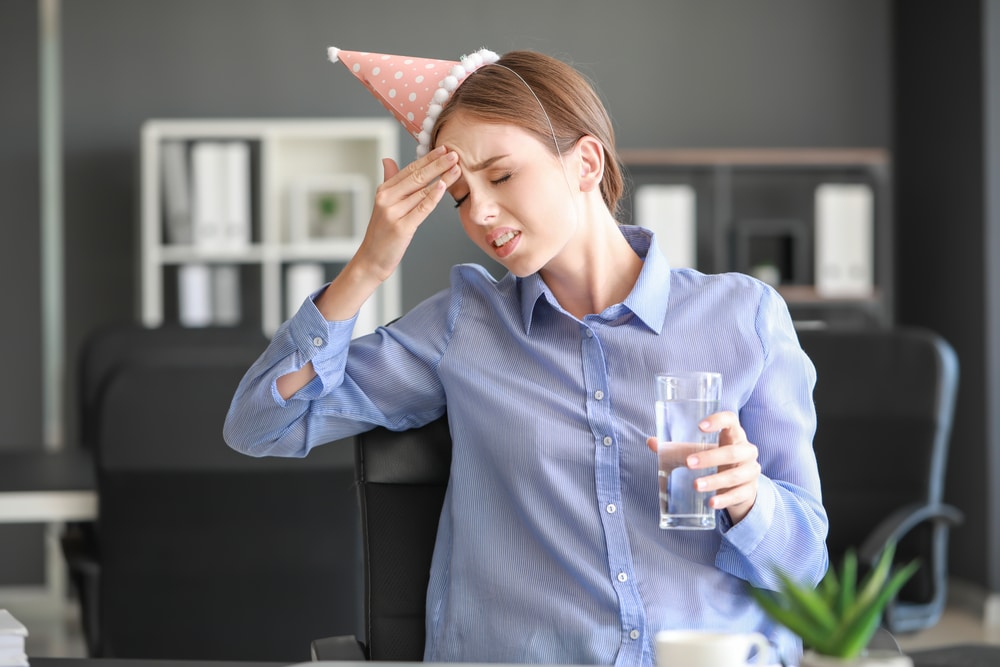Alcohol and socializing often go hand-in-hand in America’s drinking culture. Alcohol has gained a reputation as a social lubricant and a way to manage anxiety in social settings. Alcohol may be the world’s most accepted drug, but it’s still a drug, and many fail to recognize it as one.
Many people who consume alcoholic beverages do so in settings where they are around others, so they describe themselves as “social drinkers.” When someone says they’re a social drinker, they usually mean they only drink alcohol during social gatherings. This may include parties, events, sports games, and other social settings where alcohol is served and other people drink as well.
Social drinkers don’t drink alone and stick to drinking in only social settings. There is no defined pattern of use for people who identify as social drinkers. Their alcohol consumption patterns can range from drinking each weekend with friends to one time per month at a work conference.
10 Signs Your Social Drinking Could Be a Problem
There may be times you ask yourself, “Is my drinking a problem?” The following 10 signs can help you clarify if the relationship you have with alcohol is bringing about negative consequences.
1. You “Pregame” Before Events or Social Gatherings.
Your drinking may be a problem life if you use alcohol as a social lubricant to get through a no-alcohol event or you kick back a few before going to an event where you’ll be drinking even more. If you find yourself drinking to get ready to do more drinking, then it may be time to explore your relationship with alcohol.
2. You Stop Getting Invited to Events with Alcohol.
Perhaps it was a one-time event when things got “out of hand,” or maybe it’s been a regular occurrence, but when friends or family stop extending invitations to events where alcohol is served, it can be a sign that your relationship with alcohol needs to be looked at.
3. You Experience Guilt or Shame After Drinking.
Do your actions or words during drinking episodes ever trigger feelings of remorse? When inhibitions are lowered, you may say or do things that aren’t consistent with your values or character. The effects of alcohol can push you to act in ways that make you feel depressed or down the following day. If you beat yourself up over your choices and actions when under the influence of alcohol, it may be time to look at the role alcohol plays in your life.
4. You Get Defensive When Others Question Your Drinking.
The way you view your behaviors and the way others view your behavior can be different. You may feel that your drinking pattern is no different than the company you keep, yet the impact alcohol has on you can be profoundly different. People don’t tend to get angry about things they are not invested in. If you find yourself defending your drinking patterns, it may be time to examine your drinking behavior.
5. You Drink More Than You Intended.

What’s the point of drinking if you are not going to achieve a good “buzz?” The idea that the next drink is going to make you feel even better is the driving force behind alcohol abuse or binge drinking. It’s what fuels the chase to capture that sense of euphoria and results in consuming more alcohol than intended. If you find yourself setting limits on how much you are going to drink, and then passing those limits, it may be time to talk to a professional about your alcohol use.
6. You Continue Drinking After the Social Event Has Ended.
Do you keep drinking at the end of an event to keep the party going? If no one joins you after the event, you may find yourself having a nightcap when you go home. If you the limits of your drinking extend outside of social situations like events, it may be time to examine your relationship with alcohol.
7. You Use Alcohol as a Reward.
Perhaps it isn’t hard to find a drinking motive anymore. You begin to look at alcohol as a reward for accomplishing a project, achieving a goal, or just getting through the day. When alcohol is the reward driving your behaviors, it is time to examine how much of a role alcohol has in your life.
8. You Use Alcohol to Manage Emotions.
Just like some can look at alcohol as a reward, they can also look at it as an emotional fire extinguisher. The link between distressing emotions and drinking can be a strong bond. When you look to alcohol consumption to “solve” the “problem of feeling,” you form a strong emotional connection that extends further than drinking socially.
9. You Have Blackouts When Drinking.
Do you sometimes find yourself nodding absentmindedly when people talk about things that happened while you were drinking? Do you find periods of time are missing from the previous day’s heavy drinking or binge-drinking episode? Perhaps messages have been sent from your phone that you don’t remember sending, or you find yourself in bed and don’t remember getting home. That’s a blackout and a sign that your social drinking passed a threshold. If you’ve experienced it, that’s a sign that your ability to “control” alcohol use is compromised.
10. You Have Engaged in Behaviors to Try and Control Your Drinking.
AA (Alcoholics Anonymous) says it beautifully: “All of us felt at times that we were regaining control, but such intervals usually brief were inevitably followed by still less control, which led in time to pitiful and incomprehensible demoralization…. The idea that somehow, someday he will control and enjoy his drinking is the greatest obsession of every abnormal drinker.”
AA goes on further to point out some of the ways people try to control their drinking:
- Only drinking beer
- Drinking only at parties or special occasions
- Not drinking during work
- Taking a trip
- Not taking a trip
- Agreeing to resign if found drunk at work
- Switching from scotch to brandy
- Limiting the number of alcoholic beverages you consume
- Keeping alcohol out of the house
- Only drinking at home
- Not drinking in the mornings
- Only consuming natural wines
Stop Alcohol Abuse Before It Gets Worse
If you find yourself relating to this all too well, it could be time to consider specialized alcohol addiction treatment programs to stop drinking. Not all heavy drinkers who struggle with alcohol abuse require intensive alcohol detox and inpatient alcohol rehab. There are several levels of alcoholism treatment, depending on the severity of your problem. These include:
- Alcohol and drug detox
- Residential treatment/inpatient treatment
- Partial hospitalization programs (PHP)
- Intensive outpatient programs (IOP)(in-person and virtual)
- Outpatient treatment
- Sober-living residences
Some people require the space away from triggers like parties and events and the intensive treatment experience that inpatient rehab provides. Others can begin their addiction recoveries with day treatment in outpatient rehab. Professional treatment provides behavioral therapy and addiction counseling in individual and group therapy formats. You’ll meet others who understand what you’re going through, and your treatment team will help you build skills to prevent relapse.
We’re Here to Help
If you’re concerned that you or a loved one’s social drinking has crossed the line into alcohol abuse and alcohol addiction, give us a call. Alcohol use disorders rarely get better on their own. Professional treatment at a recovery center can help you take back your life and stop alcohol abuse from getting worse.
Footprints to Recovery treatment center can help you recover from alcohol or drug addiction. We’ll address the underlying causes of substance use disorders, like trauma or a dual diagnosis (co-occurring mental health disorder). Our therapists and addiction medicine professionals use proven substance abuse treatment approaches and teach you healthy relapse prevention skillsso you can stand strong in the face of triggers. Life is better in recovery. Contact us today.


